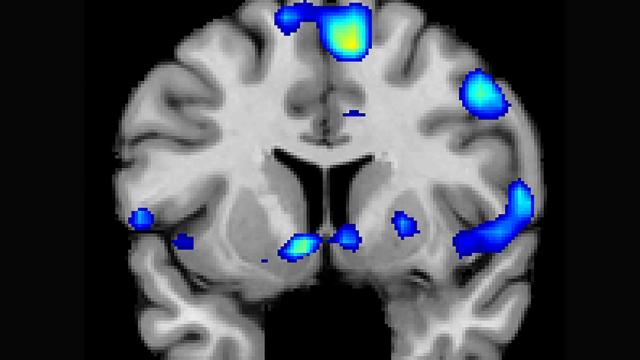Be thankful for the Universe that created you
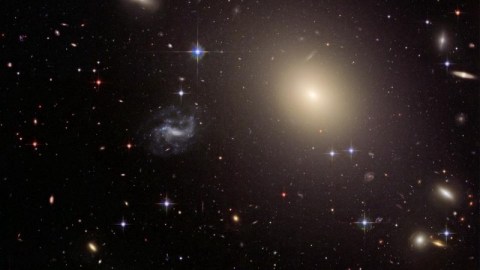
Thanksgiving may already be a week behind us, but there’s always something to be thankful for.
“If a fellow isn’t thankful for what he’s got, he isn’t likely to be thankful for what he’s going to get.” –Frank A. Clark
We all have a lot to be thankful for, but the biggest one we all have in common is that we all exist. Moreover, we exist on a world and in a Universe where it’s possible for us to exist, and to exist as long as our natural lifespans will allow us. This wasn’t guaranteed from first principles, but is rather an artifact of the Universe as it happens to be. At a huge number of different points in our Universe’s history, the laws of nature came together in such a way to make our existence possible, and to allow us to look back today, 13.8 billion years later, with thankfulness in our hearts.
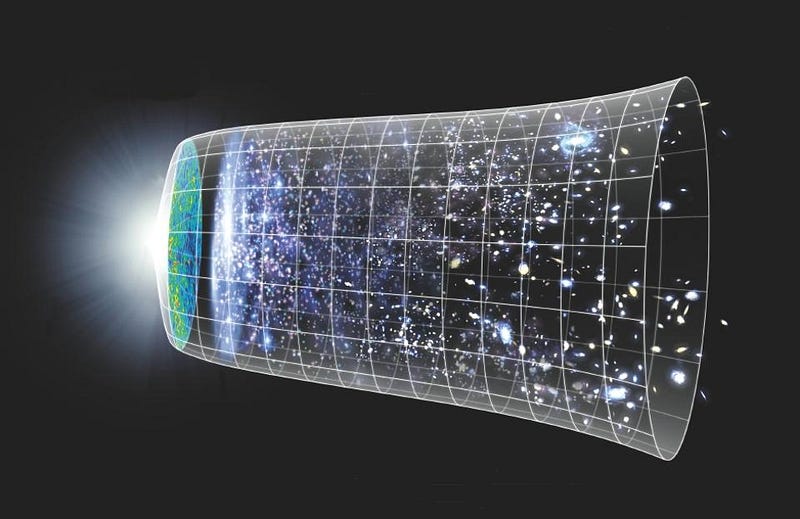
Be thankful that the Big Bang occurred. As far as our Universe is concerned, there was a “day without a yesterday,” where the expanding, cooling, matter-and-radiation-filled Universe didn’t exist as such. The end of whatever state came before the Big Bang (likely cosmic inflation) gave rise to a Universe full of particles, antiparticles, radiation and all the ingredients necessary to make our existence possible. Without the Big Bang, none of us would be here.
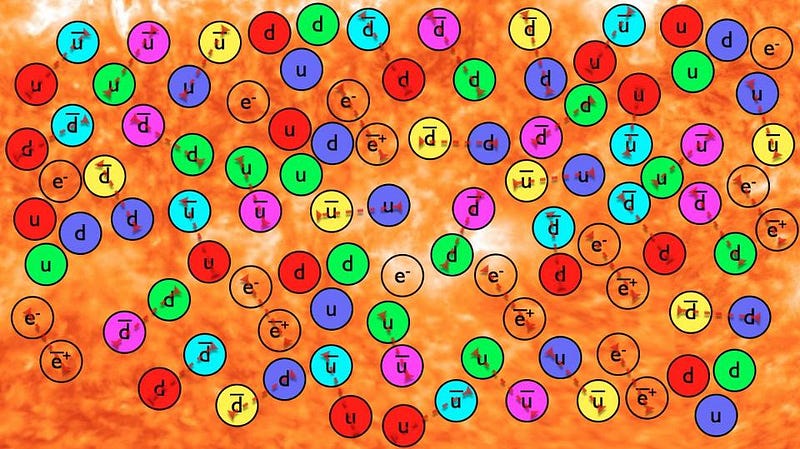
Be thankful for an asymmetric Universe. There are all sorts of important symmetries, but if everything were completely symmetric, there would have been perfectly equal amounts of matter and antimatter. As the Universe cooled and expanded, they would have annihilated away almost completely, leaving just a sparse set of particles and antiparticles less than one-billionth as dense as the Universe today. But instead, we have a Universe filled with matter and not antimatter, and that makes all the difference.
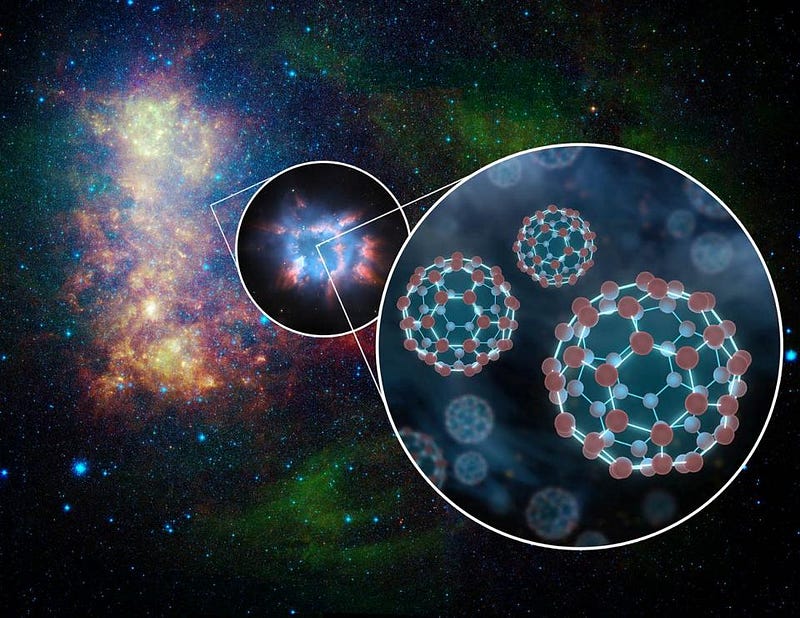
Be thankful for atoms. For the fact that we have heavy nuclei that come in a variety of possible, stable configurations and light, stable and oppositely-charged particles that form the building blocks of everything on our world. The particles in our Universe, when they cool, contract and bind together, form these atoms, which then clump and cluster together to give rise to the structure our Universe exhibits today.
Be thankful for the gravitational forces that bring massive clumps of matter together. On large scales, they create galaxies; on smaller scales, they create gas clouds, stars and even planets. It’s the gravitational force — the longest-range, most universal force of all — that enabled our home and everything that gave rise to it to form in the first place.
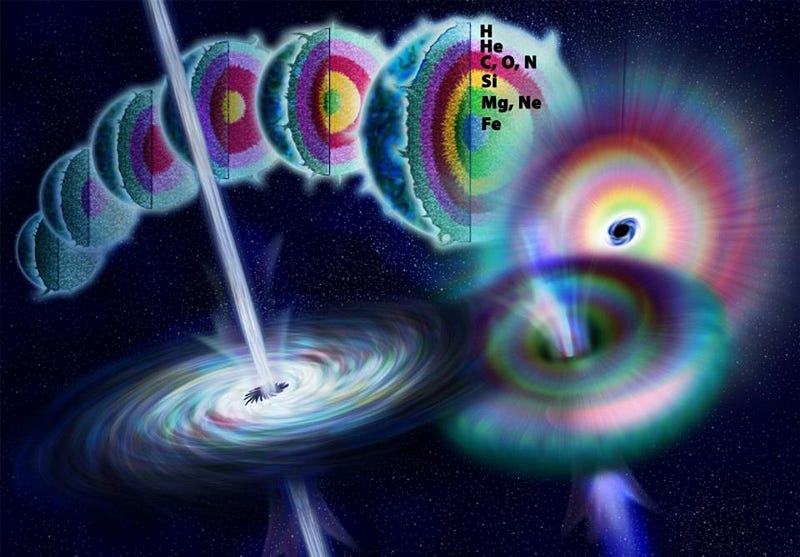
Be thankful for nuclear fusion, occurring in the cores of stars. It not only gives light to the Universe, filling it with high-energy radiation, but it enables us to build elements up the periodic table. The most massive stars, the ones that form in the molecular gas clouds brought together by gravity, burn hydrogen into helium, helium into carbon, and then build up heavier elements like oxygen, neon, magnesium, sulphur, silicon and even iron, cobalt and nickel in their cores. The majority of the heavy elements in the Universe, particularly oxygen and carbon, form this way.
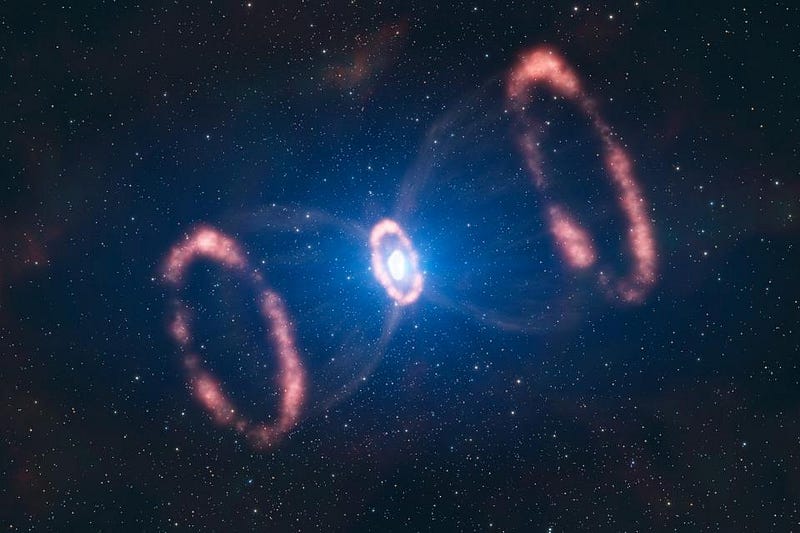
Be thankful for supernovae, which take us all the way up the periodic table. The most massive stars implode after only a few million years, and the ensuing runaway fusion reaction destroys the star and blows the outer layers, full of heavy elements, into interstellar space. As long as the galaxy is massive enough to hold onto that material — again, continue to be thankful for gravity — those heavy elements get incorporated into future generations of stars and solar systems.

Be thankful for molecular clouds, which remain in our galaxy and collapse to form new stars every so often. These star-forming nebulae, full of the recycled material from prior generations of stars, give rise to not just stars but also protoplanetary disks which form gas giants and rocky worlds.
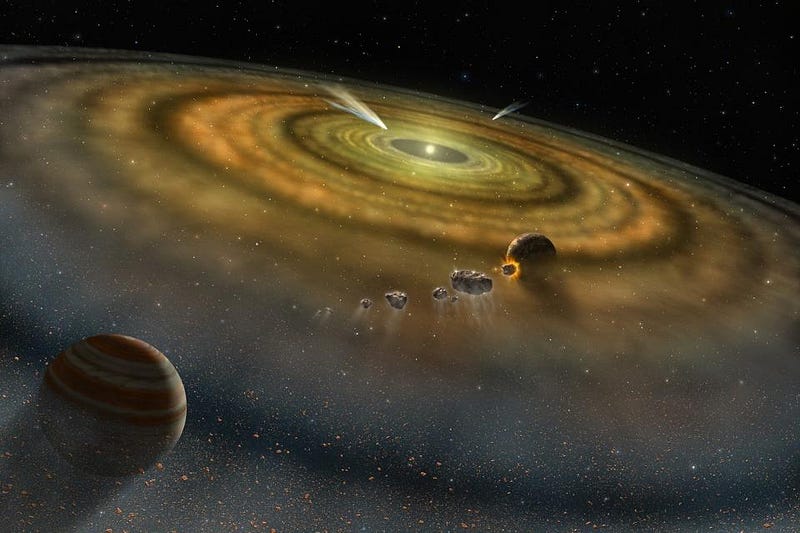
Be thankful for the rocky worlds with the right ingredients for life on them, including organic molecules and liquid water. Our Solar System started off with four — Venus, Earth, Theia and Mars — and now Theia is gone, having collided with Earth, Venus is an inferno and Mars has frozen over.
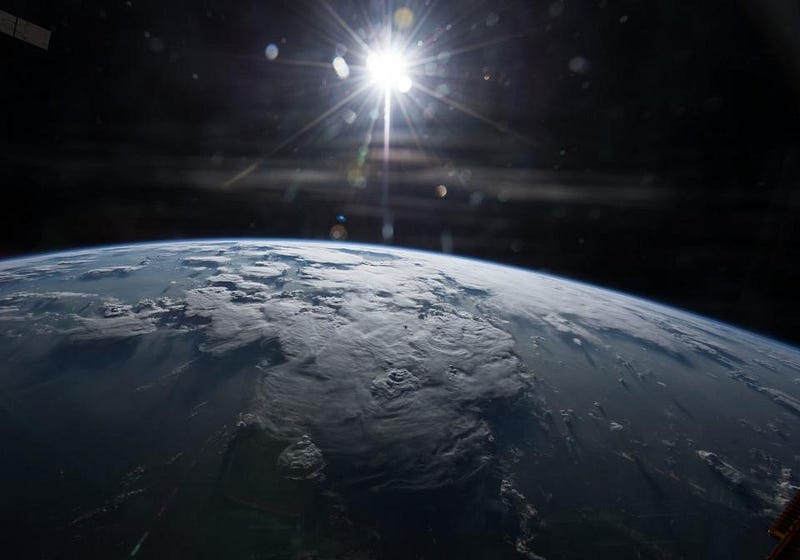
Be thankful, then, for all the fortunate successes our world has had. Be thankful for evolution; be thankful for life’s hardiness and the fact that it survived all the potential extinction events. Be thankful for plants, animals and fungi, and for the chance interactions that led life on our world to take the path it has.
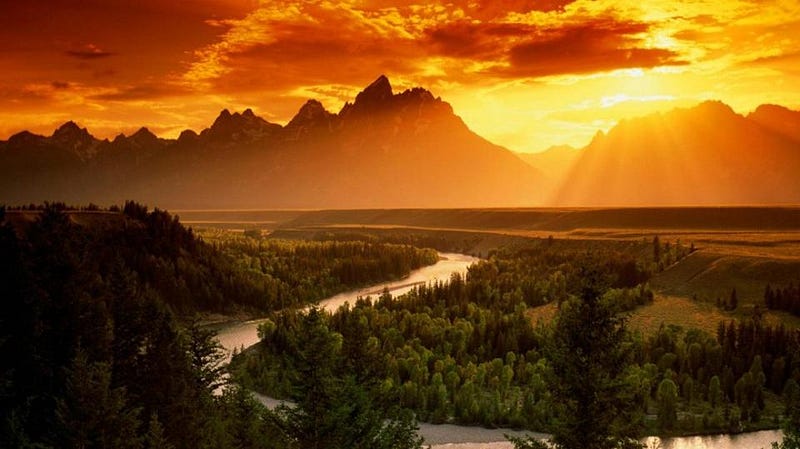
Be thankful for today. Be thankful for the atoms and molecules that have assembled to make you. Be thankful for this moment. And be thankful for the confidence you can have that the world will still be here tomorrow, with you in it. Be thankful for the Universe that created you; it’s the one story we all have in common.
This post first appeared at Forbes, and is brought to you ad-free by our Patreon supporters. Comment on our forum, & buy our first book: Beyond The Galaxy!





